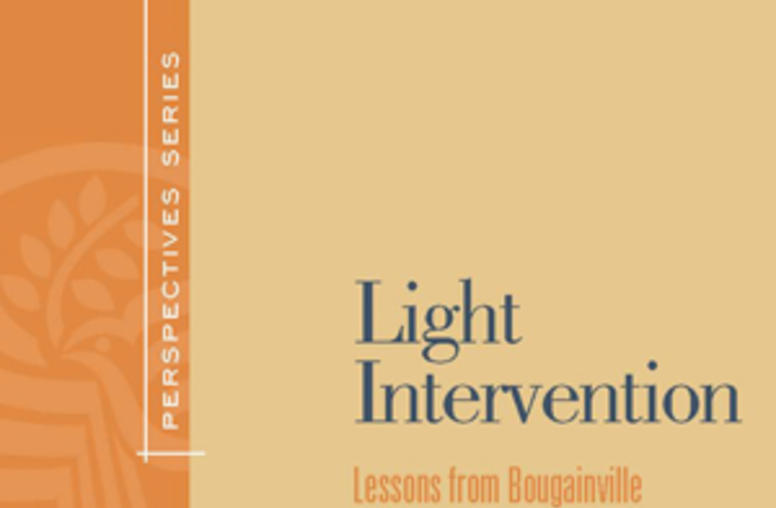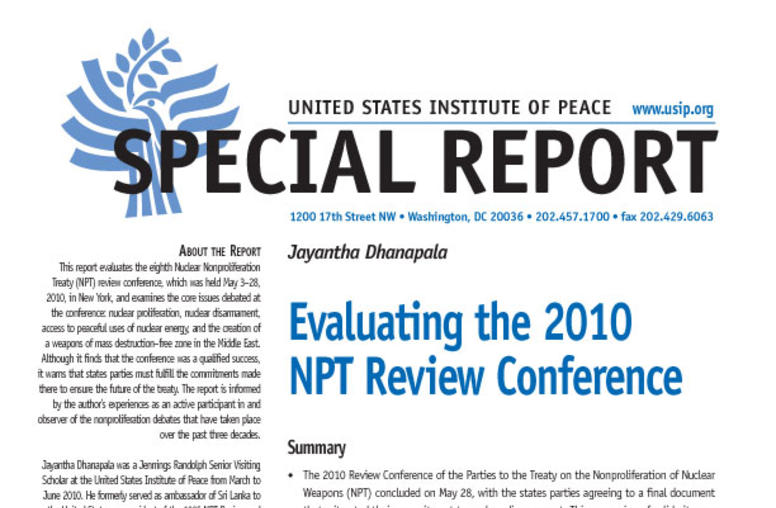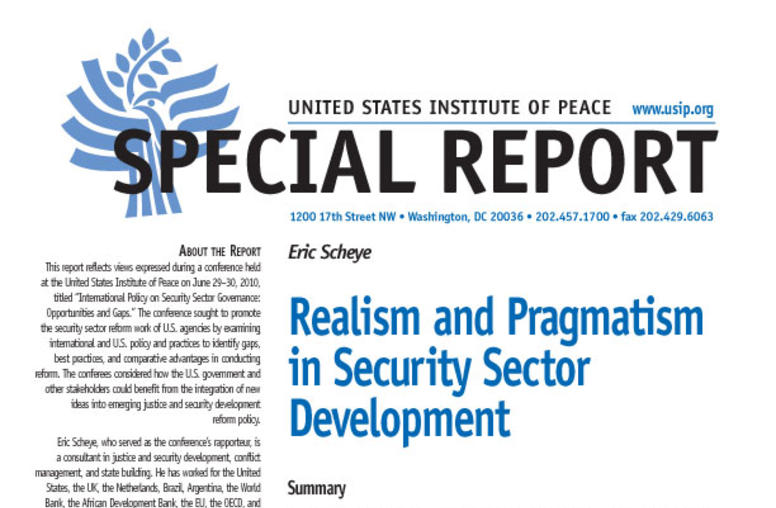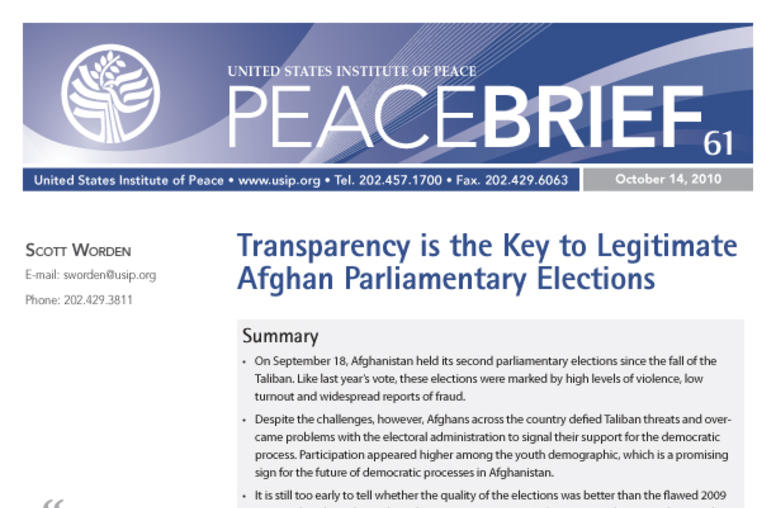Publications
Articles, publications, books, tools and multimedia features from the U.S. Institute of Peace provide the latest news, analysis, research findings, practitioner guides and reports, all related to the conflict zones and issues that are at the center of the Institute’s work to prevent and reduce violent conflict.

Light Intervention
Regan examines the ideal conditions for light international intervention and analyzes the remarkably successful Bougainville peace process, which ended the apparently intractable, violent, and deeply divisive separatist conflict that for much of the period from 1988 to 1997 destabilized both Papua New Guinea and the wider Pacific islands region.
Academy Course Simulations Stimulate Critical Thinking
Simulations are key to engaging and identifying the differences and similarities between groups, and are often the first step in peacemaking, according to United States Institute Academy for International Conflict Management and Peacebuilding Instructor Peter Weinberger. These simulations provide students with critical thinking skills which they can translate into action in the field.
Project on Conflict, Democracy and Security
Led by Daniel Brumberg, senior adviser to the Center for Conflict Analysis and Prevention, this project examines the conditions surrounding political reform in unstable and/or divided societies, aiming to provide a guide for peaceful and inclusive democratic transformation.

Evaluating the 2010 NPT Review Conference
This report evaluates the eighth Nuclear Nonproliferation Treaty (NPT) review conference, which was held May 3–28, 2010, in New York, and examines the core issues debated at the conference: nuclear proliferation, nuclear disarmament, access to peaceful uses of nuclear energy, and the creation of a weapons of mass destruction–free zone in the Middle East.
Health and Migration Concerns Increase for the Future of North Korea
With the international community’s continued focus on North Korea’s nuclear weapons program, humanitarian concerns for the North Korean people remain largely overlooked. With this in mind, panelists met at the United States Institute of Peace on October 19th to discuss the state of North Korea’s healthcare system and the migration of North Koreans to China and South Korea.
Social Media Amplify Concerns in India’s Jammu and Kashmir State
For now, violent clashes in Indian-controlled Kashmir between young Kashmiris and Indian security forces may appear to have died down. But these conflicts remain highly visible on the Internet, where youth are using social media to continue to air their grievances and advance their cause, according to panelists who spoke at the United States Institute of Peace on October 5th.
On the Issues: Lebanon
Mona Yacoubian, director of the Lebanon Working Group at the U.S. Institute of Peace and special adviser to the Institute’s Center for Conflict Analysis and Prevention, discusses recent developments in Lebanon, and their broader impact on the region as well as prospects for peace in the Middle East.

Realism and Pragmatism in Security Sector Development
This report reflects views expressed during a conference held at the United States Institute of Peace on June 29–30, 2010, titled “International Policy on Security Sector Governance: Opportunities and Gaps.” The conference sought to promote the security sector reform work of U.S. agencies by examining international and U.S. policy and practices to identify gaps, best practices, and comparative advantages in conducting reform.
“Children of War” Screening at United Nations Spotlights Efforts to Aid Child Soldiers
On October 12, at the United Nations General Assembly Hall -- the storied room in which world diplomacy is conducted -- an audience of approximately 800 guests watched the world premiere of the documentary "Children of War.” In November 2009, USIP co-hosted the film's first Washington, D.C. screening and tonight's event at the U.N. boosted the film's momentum to generate awareness of and action to end the plight of child soldiers.

Transparency is the Key to Legitimate Afghan Parliamentary Elections
Scott Worden is a senior rule of law adviser at the U.S. Institute of Peace and observed the 2010 elections from Kabul, Afghanistan as a senior expert with the National Democratic Institute’s observation mission. Worden was one of three U.N.-appointed commissioners on the 2009 Electoral Complaints Commission in Afghanistan.